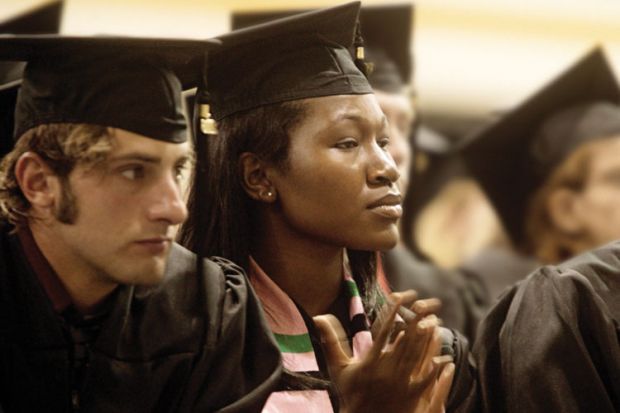US
It’s a lot easier for the rich
A study of 45 years’ worth of US data suggests that rising tuition costs and drops in federal government aid have made it harder for the country’s students from low-income families to earn a degree. According to Indicators of Higher Education Equity in the United States, published by researchers at the University of Pennsylvania, in 2013, students from high-income families were eight times more likely to complete their degree than those from disadvantaged backgrounds. In 1970, they were only five times more likely to graduate.
Spain
A year off here, an extra there
Spain is to cut the length of an undergraduate degree from four years to three. It will also extend master’s degrees from one year to two, thus bringing Spain into line with most countries in Europe and saving families €150 million (£112.7 million) a year, said José Ignacio Wert, the country’s education minister. The conservative government included the changes in a new higher education law passed last month. The change will make it easier for Spanish students to take a PhD abroad because their master’s degrees, sometimes earned in just six months, were not considered long enough, Mr Wert said.
China
A helping hand for poorer Chinese
More Chinese students from low-income backgrounds are heading for study at US universities as a result of new funding initiatives, according to The New York Times. Two Chinese real estate “moguls”, Pan Shiyi and Zhang Xin, have given $15 million (£9.8 million) to Harvard University and $10 million to Yale University to support low-income students through their SOHO China Foundation, the newspaper said. Meanwhile, the US State Department’s EducationUSA programme has created a $1 million fund to support students from poorer backgrounds meet costs such as application fees.
Ecuador
Think it, bank it, back it
The government of Ecuador is developing a bank for innovation that will work in conjunction with its new technological university. The Bank of Ideas will accept proposals from the public through an online social media platform. A committee will review the suggestions, and ideas that are approved will benefit from support and mentoring schemes at Yachay University. The entrepreneurs will then receive public funding to develop their proposals into products with the help of academics at Yachay Tech.
South Africa
Lessons have been cut short
Anatomical dissection classes at a South African university are being hampered by a shortage of cadavers. Up to 15 students must share a single body in lessons at the University of KwaZulu-Natal, compared with the normal four, reports Johannesburg-based The Times. Previously, the university relied on donations from state mortuaries, but the time allowed for the tracing of relatives has been extended in recent years. The university will now use more computer simulations in its anatomical teaching, the report said.
New Zealand
Higher bar means fewer entrants
More than 4,000 fewer secondary school pupils attained the grades needed to enter New Zealand’s eight universities in 2014 after the entry threshold was raised, figures show. Only 58 per cent of pupils – about 20,500 – hit the mark in the 2014 exams for the National Certificate of Educational Achievement. In 2013, 71 per cent met a lower threshold. Universities New Zealand, which had pushed for tougher entrance standards to counter high dropout rates, said the size of the fall in the number of qualifiers was surprising.
Register to continue
Why register?
- Registration is free and only takes a moment
- Once registered, you can read 3 articles a month
- Sign up for our newsletter
Subscribe
Or subscribe for unlimited access to:
- Unlimited access to news, views, insights & reviews
- Digital editions
- Digital access to THE’s university and college rankings analysis
Already registered or a current subscriber? Login

